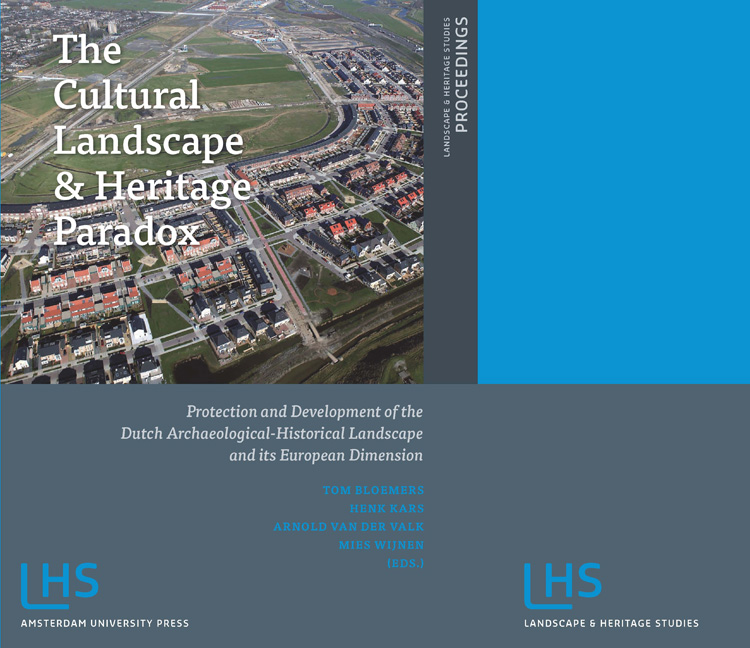 The Cultural Landscape and Heritage Paradox
The Cultural Landscape and Heritage Paradox Book contents
- Frontmatter
- Contents
- Preface
- I INTRODUCTION
- II INSIGHTS AND PROSPECTS OF ARCHAEOLOGICAL-HISTORICAL LANDSCAPE STUDIES
- III LINKING KNOWLEDGE AND ACTION
- IV IMAGINATION - FACTS AND CONSTRUCTIONS
- V SHARING KNOWLEDGE - STORIES, MAPS AND DESIGN
- VI SYNTHESIS AND CONCLUSIONS
- VII MANAGEMENT OF KNOWLEDGE
- VIII AGENDA FOR THE FUTURE
- IX SUMMARY
- X APPENDIX
- Subject Index
- Index of Places and Regions
4 - The Planarch experience
Published online by Cambridge University Press: 21 January 2021
- Frontmatter
- Contents
- Preface
- I INTRODUCTION
- II INSIGHTS AND PROSPECTS OF ARCHAEOLOGICAL-HISTORICAL LANDSCAPE STUDIES
- III LINKING KNOWLEDGE AND ACTION
- IV IMAGINATION - FACTS AND CONSTRUCTIONS
- V SHARING KNOWLEDGE - STORIES, MAPS AND DESIGN
- VI SYNTHESIS AND CONCLUSIONS
- VII MANAGEMENT OF KNOWLEDGE
- VIII AGENDA FOR THE FUTURE
- IX SUMMARY
- X APPENDIX
- Subject Index
- Index of Places and Regions
Summary
ABSTRACT
Planarch (PLANning and ARCHaeology) was a European Interreg project with partners from England, France, Belgium, the Netherlands and Germany which ran in two phases from 1999 to 2006. The aim was to improve the integration of archaeology in spatial planning through sharing experience and joint working. A project philosophy involving the cyclical process of identification, evaluation, management and promotion of the archaeological resource had understanding at its hub. Within the themes key work examined how to generate sound information bases (in particular the role of Historic Environment Records) for underpinning decision-making, the effectiveness of different approaches to archaeological field evaluation and the formulation of management strategies for embracing the historic environment within land-use planning, both at a strategic and a project level. A major study investigated current approaches to dealing with cultural heritage in Environmental Impact Assessment and drew up a series of Guiding Principles. The project underlined the importance of the iterative application of identification, evaluation, management and promotion in decision-making; understanding should be at the heart of decision-making, accepting that understanding can be personal and subjective, and effective communication, together with stakeholder involvement and ownership, is therefore essential from the early stages of any proposals.
KEY WORDS
Planarch; integration of archaeology in spatial planning; archaeological field evaluation; archaeological management strategies; Environmental Impact Assessment; communication
INTRODUCTION
The Planarch 1 project came into being in 1999, after a gestation period of about two years, and continued until 2002 with partners in southern England, northern France, the Netherlands and Belgium. For Planarch 2, which ran from 2003 to 2006, these same countries were involved, if with some changes in actual partners and with the addition of the Rhineland in Germany (Fig. 1-2). The projects were financed mainly by a combination of partner contributions and European Interreg funding for the North-West Europe region, the IIC stream for the first project and IIIB for the second. The following paper briefly introduces the philosophy behind the project and the subject areas covered; more detail is available in the various reports listed in the bibliography and referenced in the text. The contribution concludes with some personal observations that are hopefully of value in terms of the purpose of this volume and its focus on inter- and transdisciplinarity.
- Type
- Chapter
- Information
- The Cultural Landscape and Heritage ParadoxProtection and Development of the Dutch Archaeological-Historical Landscape and its European Dimension, pp. 557 - 564Publisher: Amsterdam University PressPrint publication year: 2010


